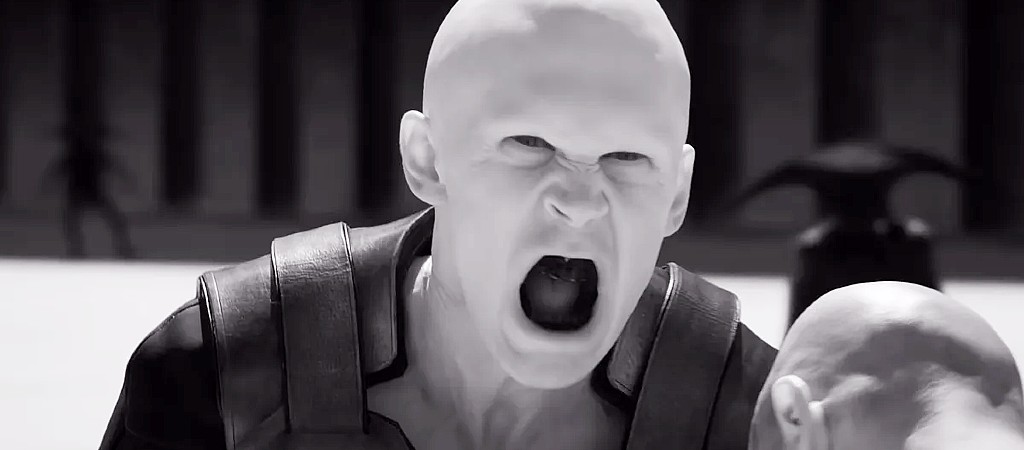Denis Villeneuve‘s first Dune film arrived at a very weird time for Hollywood and the world. Part One, as it’s now being called, dropped onto HBO Max at the tail-end of Warner Bros. studio’s highly controversial decision to stream its entire 2021 film slate on the platform as the COVID pandemic ravaged the theater industry. Fortunately, the circumstances spared Villeneuve from relying on box office receipts to justify a sequel as Warner Bros. immediately gave him the greenlight for Dune: Part Two.
After some delays, the sequel is finally ready to give the back-half of Frank Herbert’s sci-fi epic a proper theatrical release, and judging by the reviews, Part Two absolutely deserves the big screen treatment. Much like the social media reactions, the word “masterpiece” is being tossed around as critics agree that the sequel exceeds the first film in every possible way.
You can see what the reviews are saying below:
Mike Ryan, Uproxx:
On Villeneuve’s press tour for his first Dune, here was the first half of a movie, with no ending, that despite it all was getting almost universal acclaim and would wind up with a Best Picture nomination, and instead of taking a victory lap, even he was like, Just wait for the next one. He was right. You’re going to see people throw around the word “masterpiece” about Dune: Part Two and I’m not going to sit here and tell you they are wrong. It very well might be. (I would say, ask me in a year.) But Dune: Part Two is certainly up there with some of the best science fiction movies I’ve ever seen. And yeah, turns out Dune is certainly a filmable movie.
David Fear, Rolling Stone:
Thank your respective gods that Villeneuve got the greenlight for another chapter. His Dune: Part Two isn’t just a continuation of a saga. The French-Canadian filmmaker has delivered an expansion and a deepening of the world built off of Herbert’s prose, a YA romance blown up to Biblical-epic proportions, a Shakespearean tragedy about power and corruption, and a visually sumptuous second act that makes its impressive, immersive predecessor look like a mere proof-of-concept. Villeneuve has outdone himself. More importantly, he’s done justice to the scope and scale and sheer weirdness of a stoner-lit touchstone’s back half without, pun intended, sanding away its edges. It’s unapologetically geeky. It’s twice as unapologetically cinematic.
Johnny Oleksinski, New York Post:
Speaking of happy tears, Villeneuve is careful — actually, much more careful than the last director to take on this story, David Lynch — to avoid “Dune” becoming a “Star Wars” or an “Avatar.” Although those differently excellent movies would surely not exist without Frank Herbert’s seminal novel “Dune,” this is a far more complicated tale of geopolitics and religion. Good and evil are not so clear-cut. It’s also a hell of a lot weirder.
David Ehrlich, IndieWire:
As usual, Villeneuve thrives in the world-building of it all. Few directors who operate at his scale — and there are only a few directors who operate at his scale — are as skilled at framing bodies against the vastness of blank space, and we intuit more about the history of Arrakis from Patrice Vermette’s awe-inspiring sets than we do from anything the characters have to say about it. Watching Paul walk through the Fremen’s half-buried homestead tells us everything we have to know about the urgency of their fight for survival against the Harkonnen colonizers who’ve pillaged their planet for its spice, and when Lady Jessica is forced to ingest “centuries of pain and sorrow” in order to become the Reverend Mother under penalty of death, we can imagine what that tastes like.
Lovia Gyarkye, The Hollywood Reporter:
Running close to three hours, Dune: Part Two moves with a similar nimbleness to Paul and Chani’s sandwalk through the open desert. The narrative is propulsive and relatively easy to follow, Hans Zimmer’s score is enveloping, and Greig Fraser’s cinematography offers breathtaking perspectives that deepen our understanding of the fervently sought-after planet. All these elements make the sequel as much of a cinematic event as the first movie.
Rachel Leishman, The Mary Sue:
One of the shortcomings of the previous movie was the use of Zendaya. While Chani was not yet an important character to Paul, outside of the dreams he had of her, we as the audience only got crumbs of Zendaya’s performance. Part Two shines in how it gives her power as a voice among the Fremen while still building out her relationship with Paul.
Damon Wise, Deadline:
Intrigue is the key word in Part Two, as some old faces reappear and new ones are teased. But whenever we’re away from Paul, the story starts to drift, and the plotting — so seamless in Part One — now seems episodic, in a serial TV kind of way, even though the production values are obviously much, much higher than that. The world of the Harkonnens is heavily stylized, recalling Ridley Scott’s Alien worlds, and yet there’s also the faint whiff of prog-rock about it, as if this were the subject of a lost 1970s Rick Wakeman concept album, the kind that would usually be performed as a rock opera on ice.
Peter Debruge, Variety:
Audiences spoiled by TV series such as “The Sopranos,” “Succession” and “Game of Thrones,” which juggled intricate strategizing with explosive confrontations over runs of many years, will find in Villeneuve’s multi-part saga a satisfaction few films can offer. It’s an enormous gamble, given the expense of creating at this scale, and a vote of confidence in cinema, which still hasn’t recovered to the pre-pandemic level where the franchise was conceived. The fate of far more than Arrakis is riding on “Dune.”
Dune: Part Two worms into theaters on March 1, 2024.







